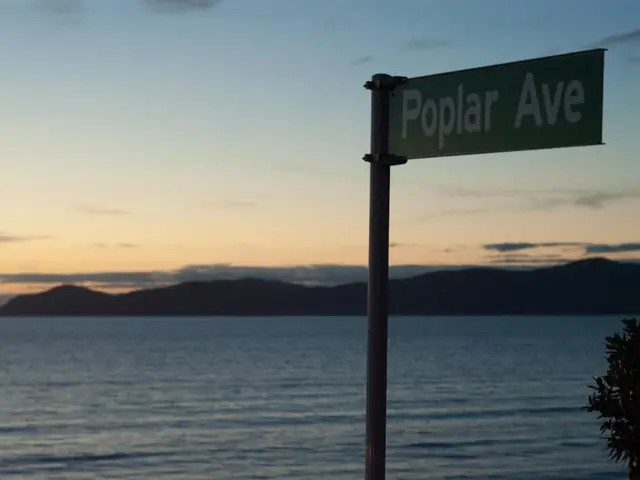Luxurious 9,000 sq ft estate belonging to Intel co-founder Gordon Moore, credited with Moore's Law, hits the market. The property, situated on 25 acres, boasts a wine cellar, a pool, and a strict stipulation.
The Regal Abode of Gordon Moore, Pioneer of Moore's Law, up for Sale
Stepping onto the market after the passing of its illustrious owner almost three years ago, the 25-acre Mountain Meadow estate, once the majestic residence of Intel co-founder Gordon Moore, is now available for a cool $29.5 million. Held under a meticulous conservation covenant, future buyers must tread lightly and preserve the estate's old-world charm and pristine natural beauty.
SFGate warns potential buyers to prepare for a preservation-focused purchase. Though the property is a far cry from the ostentatious mansions often associated with the tech elite, it radiates a timeless elegance that, thanks to the conservation covenant, is set to remain untouched.
Gordon Moore, father of Moore's Law, first articulated his revolutionary prediction in 1965, asserting that the number of transistors on an integrated circuit would double every year. As his vision unfolded, Moore revised his law in 1975, predicting a doubling of transistors every two years. Despite controversy and debate, Moore's Law has continued to shape the semiconductor industry, serving as a driving force for innovation.
This historic property is paradoxically under the protection of the Peninsula Open Space Trust (POST), which obtained the estate through a charitable donation in Moore's will. Buyers will be required to adhere to a strict set of conditions, curbing development, property subdivision, and safeguarding the estate's natural and historic features.
Exploring the Magnificence of Mountain Meadow
Inside Mountain Meadow, one will find nearly 9,000 square feet of habitable space spread across the main residence. The expansive home offers five bedrooms, four bathrooms, and a variety of amenities such as a living room, dining room, kitchen, breakfast nook, library, media room, office, and butler's pantry. Above the library, there's even a mezzanine floor complete with a loft office. The home's lower level includes a wine cellar, and, surprisingly, an elevator.
Adjacent to the main house is a detached garage boasting a studio and half-bath, while a 12-car garage, workshop, and storage account for an additional 6,515 square feet. A separate three-bedroom guesthouse, complete with a two-car garage, offers additional living space for visitors. Other built features of the property encompass a large greenhouse, swimming pool, and tennis court.
The stunning landscapes of the property extend beyond its built structures. The grounds, comprising approximately 25 acres, encompass garden areas designed by Bruce Porter and Thomas Church, who also added the pool in the late 1940s.
Step into the Future: Subscribe to Tom's Hardware
If you're a tech enthusiast with an appetite for real estate, you might find it fascinating to know that the Moore family adopted Mountain Meadow as their home in the early 90s. Property records reveal a purchase price around $6 million, with over $15 million spent on renovations during the family's ownership. Given the market trends of 2025, the asking price of $29.5 million comes as less of a surprise.
For the latest news, reviews, and in-depth analysis, be sure to subscribe to Tom's Hardware!
Follow Tom's Hardware on Google News for real-time updates on technology, gaming, and gear.
Investing in the historic Mountain Meadow estate presents an opportunity for those who value both home-and-garden and lifestyle, as it offers beautifully designed garden areas connected to the prestigious work of Bruce Porter and Thomas Church.
Furthermore, for tech enthusiasts who appreciate real-estate and the story behind it, the former residence of Gordon Moore, the pioneer of Moore's Law, is an exceptional blend of technology and living history.
With the increasing interest in sustainable living and preservation, the future owners of Mountain Meadow must be prepared for interacting with and adhering to financial commitments associated with the conservation covenant implemented by the Peninsula Open Space Trust (POST).








